Nicolas Hale-Woods, « The Freeride World Tour is the freeride commission within the FIS »
Interview by Mathieu Ros for WeMountain
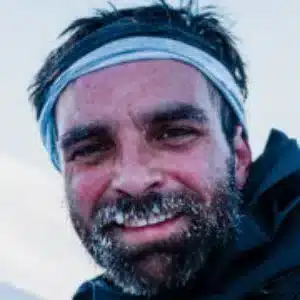
Mathieu Ros Medina is a passionate skier, snowboarder and mountain enthusiast with more than 15 years of experience as a journalist in these fields.
It all started in 1994. Nico Hale-Woods and his friend Philippe Buttet were producing a film for Victorinox, and found themselves snowboarding on the Bec des Rosses, in Verbier. It was there that they got the idea of launching the Verbier Xtreme, a freeride competition first held in 1996 which was to be the origin of the Freeride World Tour (FWT). The announcement in December 2022 of the sale of FWT SA to the international ski federation (FIS) caused a lot of turmoil. We asked Nicolas a few questions to find out what will change in the freeride competition landscape, with a possible Olympic recognition in sight.

WeMountain: Can you tell us how the Freeride World Tour came about?
Nicolas Hale-Woods: In 1997, one year after the first Xtreme in Verbier, we were very close to launching a tour with an event in Russia and another one in Alaska, but it didn’t happen because the marketing director of O’Neill at the time was fired just before we signed, and he was to be the main sponsor. In the end it was a good thing we didn’t start in 1997, because we would have been too early, you have to remember that at the time the Verbier Xtreme was still 100% reserved for snowboarders.
10 years later in 2007, we created FWT SA. After organizing the Rookies Quest, which was a qualifier for the Verbier Xtreme (before that it was by invitation only), we saw that we were capable of organizing events elsewhere, notably in Flaine (France) and Andermatt (Switzerland).
The first Freeride World Tour took place in 2008, with 4 events in Mammoth, Sochi, Tignes and Verbier, financed in large part by Nissan Europe, which had followed us on the Outdoor Games in Interlaken and Tignes.
I was the only shareholder, Yannick Ducrot and my cousin Isabelle de Lalène were in the team. Soon David Carlier joined us for communication. There were four of us in the office.
WEMountain :
I didn’t know the FWT was for sale, how long has the idea been on the table?
Nicolas Hale-Woods :
It wasn’t for sale to get rid of it, but it was for sale to strengthen it.
We’ve been growing organically since the beginning, without bringing in funds. The FWT is a beautiful 16-year-old, who still has a few pimples, and we have to bring him to adulthood.
But we live in a world of sports events that is terribly competitive. And on top of that we have a model where we cannot depend on image rights or ticketing, as in many other sports, we only have the third pillar, sponsorship, which brings more than 80% of our income.
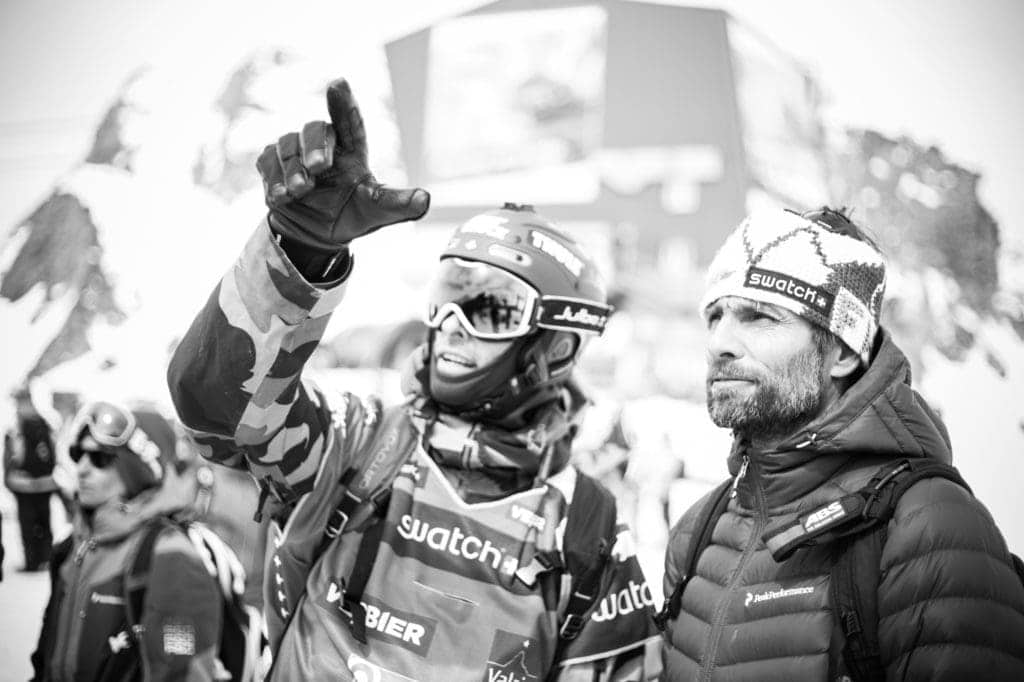
A small private company like us, with a budget of $5.5 millions is not the best setup. I’ve been on the front line of finding money for 25 years, I know how hard it is. And in 10 years’ time I’ll soon be of retirement age. I wouldn’t want to be here doing the same thing and leave one day without it being on solid ground.
So we first approached different entities with a view to them investing and having a joint ownership, a strategic partnership that would strengthens both parties. We spoke to US companies that are in the events and media business, on this market which is the most important, where we are weaker because we are small Swiss/European company. We also spoke to Europeans, to investment funds, etc. But I didn’t do all this to sell the FWT, make money and retire.
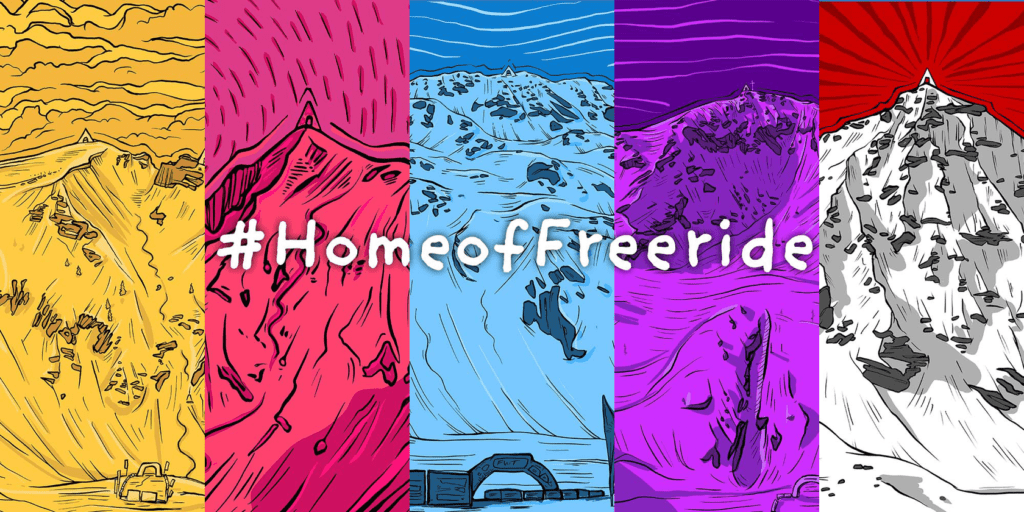
WEMountain :
Why did you finally do business with the FIS?
Nicolas Hale-Woods :
– The network. When you think there are opportunities and beautiful mountains in Georgia or Kazakhstan, if it’s Nicolas Hale-Woods who goes to the marketing director of the resorts, or the tourist office, it doesn’t carry the same weight as if it’s the president of the FIS who goes to talk to the president of those countries.
– Access to FIS Marketing. We have no guarantee, it’s not because we are with the FIS that Generali or Longines will be partners of the FWT, but we will have an option to talk to them, which will be better than if we attacked from below.
– Access to FIS Media. Again, no additional distribution at the moment, but it could offer a bigger audience for the FWT.
– Legitimacy and recognition for the riders, who will be able to access more official status, and therefore benefit from adjustments to their studies, and even financial support from certain institutions that only come into play if you are part of a federation that is recognized by your country’s Olympic Committee.
– The fifth point is, one day, the Olympic Games. I think that access to the games is more beneficial than the opposite for every sports, we have seen this with slopestyle skiing and even snowboarding. It’s debatable of course, but if you look at surfing, skating, climbing, it works. I have heard very few people say that climbing has lost its spirit with the Olympics. In surfing I haven’t heard that once, in skateboarding neither. As long as the sport is organised the way the riders want it to be, I don’t see why the spirit should disappear.
Again, let’s meet again in in a year, in three, five, eight years, and we’ll see.
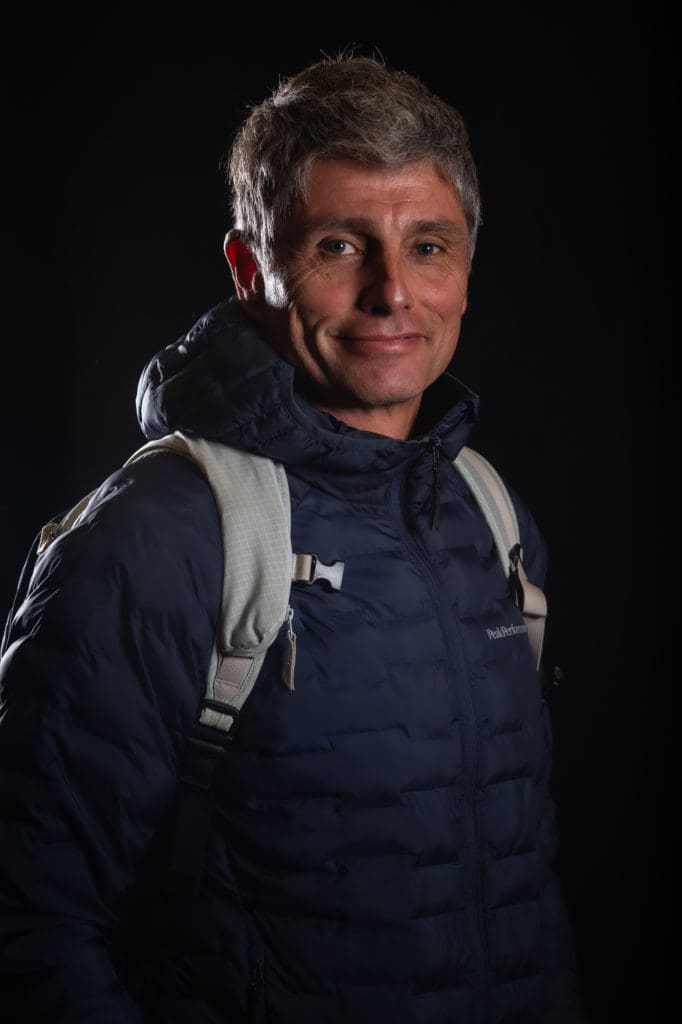
WEMountain :
Was there a choice to continue business as usual, or was selling to FIS the only solution?
Nicolas Hale-Woods :
Frankly, there was a choice. If it hadn’t been for Johan Eliash [president of the FIS], who has a different vision of the future of the FIS, we wouldn’t be talking about it.
He’s a reformer. He says “your model, where a rider can have access to his run and share it on his networks, that’s what every sport has to move towards.” But today, Odermatt, when he wins in Alta Badia, he doesn’t have access to one second of his run, because everything goes to InFront and it’s all stranded. It’s a model that has worked, that still works some would say, but that limits the development. We have over 650,000 followers on Instagram, FIS Alpine has 240,000. There clearly is a problem.
Then there is a whole structure that is completely fragmented, with a lot of rights in the federations that have events taking place on their territories. Some people say that this is a 20th century model, and that in the 21st century we need to centralize so that everyone benefits.
WEMountain :
You mean you want to change the FIS, not the other way around?
Nicolas Hale-Woods :
No no, I’m not saying I’m going to do that, but they are interested in our model, that’s it. The FWT model today, we are very small, but as I said we have 650,000 followers on instagram..
WEMountain :
Can you tell us more about the terms of the sale and what will happen in the FWT organisation?
Nicolas Hale-Woods :
I can’t really talk about it, it’s confidential, but I’m committed to a very long term, between 6 and 10 years. Even if freeride skiing makes it to the Olympics in between. The deal is that we continue with our own budget, our own team… It’s not like we’re all going to put on ties, fire half of our collaborators, and completely change our model. I’m still in charge of the FWT budget, with maybe some help, but it’s not guaranteed at all.
If I had been tired, I wouldn’t have signed up for a deal like this. This is a new challenge. We have to continue to grow the FWT, but also find a model for integration with the FIS. It goes from an independent cell to a total integration, and for the moment everything is to be done, it will probably be an in-between in the end. In addition, there will be contacts with many national federations, which are not clones, they can be very different, so there is a huge body of work to be done.
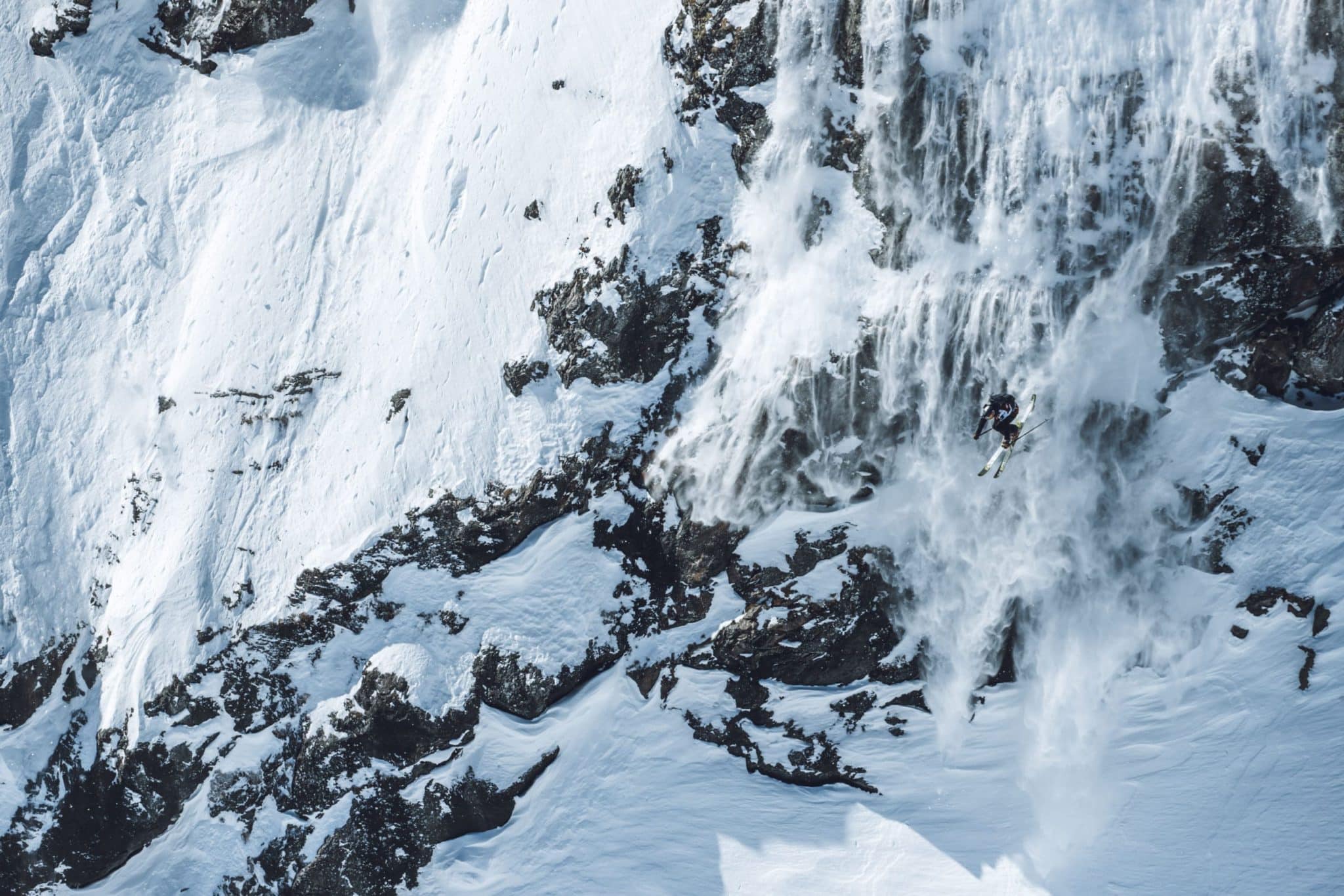
WEMountain :
What does this bring in terms of standardisation, particularly regarding riders safety?
Nicolas Hale-Woods :
For the coming season, it changes absolutely nothing. President Eliash said to me, “You’re the experts, you’re doing things right, we don’t want to come in and change that.” It’s not like they’re going to impose guidelines on us in terms of safety for a freeride event. We’ve been doing it for 25 years, we’re not perfect but we’ve developed protocols that work quite well, so on that aspect it’s not going to change anything in the short or medium term.
At one point the question was “will there be a freeride commission within the FIS?” The answer is “The FWT is the freeride commission within the FIS”.
Otherwise there will be no change, the contracts of the employees remain the same, the company is now owned by the FIS but we will still wear our Peak Performance outfits and no mandatory FIS beanies.
WEMountain :
Are there any safeguards in this deal, or can anything happen from next year?
The basic clauses are that I remain on the FWT board, that I am responsible for the budget and that I have independence to build it with just the fact that I propose to the FIS partners when there is a renewal. Then the FWT is the freeride commission within the FIS, so it defines the rules of the sport, the judging, the rankings.
It is no secret that today the FIS does not agree with certain national federations. For the moment this has no impact on the evolution of the FWT, and in the long term, the day we have freeride at the Olympics, the national federations will by definition be involved, and my vision is that we will find a win-win relationship. This is not exactly the case today for freestyle skiing, with all the rights going to the national federation, and riders who are almost employees.
WEMountain :
We have read a lot of very critical messages following the announcement of this deal, does it affect you? It’s feels like the biggest shitstorm since Elon Musk bought Twitter…
Nicolas Hale-Woods :
It affects me a little bit, but not much. It’s never nice to read that you sold your soul to the devil and are destroying our sport. But you have to put it into perspective. There were 13,000 likes on that Instagram post, 1,300 comments of which 97% were negative. When you have this kind of shitstorm, the few who try to be positive get a beating right away, so all those who are neutral or positive won’t intervene. It’s not like 97% of our audience is against it.
Then you look at who’s stirring things up and you realize that there’s one guy who doesn’t even freeski, he sells weed by mail order. Perhaps in this case you can spot a marketing coup… Of course not all of them are in that vein. I had a great conversation with Markus Edder who called me before sending a comment. He explained his vision, that he was doing slopestyle in 2013, taken in the Italian team to go to the Sochi Olympics, and for him it was hell, because he had to go to court and lost, about sponsorship issues. I explained to him that we were in another system, he put an emoji with a frightened face, and I understand, I don’t blame him. I think only time will prove if I was right to go in this direction.
WEMountain :
Did you take advice or did you make this decision on your own?
Nicolas Hale-Woods :
I talked about it with the FWT management, the board, our council. Some riders too, like Reine Barkered. Young people who don’t have the history of the FIS, that ate the national snowboard federation and killed freestyle. Take Sybille Blanjean for example, she’s fed up with being told she’s not a top level athlete. Very clearly the younger ones, who have a more professional approach, see it as an opportunity to one day go to the games, and have a real career. If some people think it’s annoying because there will be drug tests, they shouldn’t compete, or they should do another Tour. Riders have to take responsibility, and there are fewer and fewer who smoke on the day of the competition. There is recreational smoking, that’s the case in freestyle too, but the guys, if they want to have a career, they know that 6 to 8 weeks before they have to abstain, and it’s the same in all sports.
So I’m not totally insensitive to criticism, but it’s more a motivation for me to move the sport in the right direction.


Responses